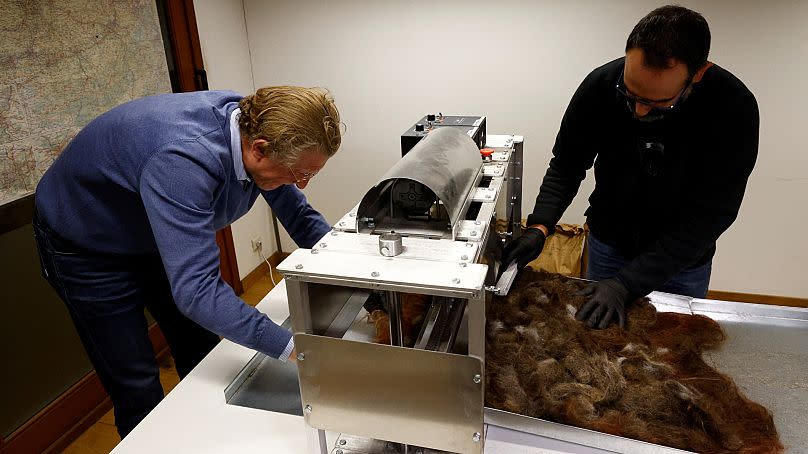Circular economy: Human hair recycled to clean waterways in Belgium

A Belgian NGO is using human hair clippings to absorb environmental pollutants.
The Hair Recycle Project is led by Belgian non-profit Dung Dung, which develops waste recovery schemes that support a circular economy.
For this project, clippings are collected from hairdressers across the country. The hair is then fed into a machine that turns it into matted squares. These can be used to absorb oil and other hydrocarbons polluting the environment. They can also be made into bio-composite bags.
The mats can be placed in drains to soak up pollution in water before it reaches a river. They can also be used to deal with pollution problems due to flooding and to clean up oil spills.

A single kilogram of hair can absorb seven to eight litres of oil and hydrocarbons.
"Our products are all the more ethical as they are manufactured locally... they are not imported from the other side of the planet," says project co-founder Patrick Janssen. "They are made here to deal with local problems."
Rainwater everywhere on Earth unsafe to drink due to ‘forever chemicals’, study finds
New EU plastic waste ban could mark the end of miniature hotel toiletries
How else can human hair be recycled?
While long, healthy locks can be donated to make wigs, shorter hair clippings have a variety of other uses.
Since hair is nitrogen rich, it can be used as a garden fertiliser. Various companies are also experimenting with hair as a building material.
London based biomanufacturing company Biohm is using human hair waste to produce alternatives to wood based sheet material and 3D objects. At this year's London Design Week, Studio Sanne Visser unveiled homeware that incorporated human hair rope.
On its website, the Hair Recycle Project lauds the powerful properties of hair: one strand can support up to 10 million times its own weight. As well as absorbing fat and hydrocarbons, it is water-soluble and highly elastic due to its keratin fibres.

Isabelle Voulkidis, manager of the Helyode salon in Brussels, is one of dozens of hairdressers across the country that pay a small fee to the project to collect their hair cuttings.
"What motivates me, personally, is that I find it a shame hair is nowadays just thrown in the bin, when I know that so much could be done with it," she says.

 Yahoo News
Yahoo News 